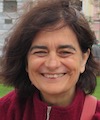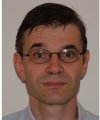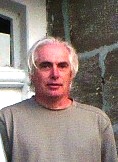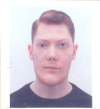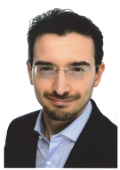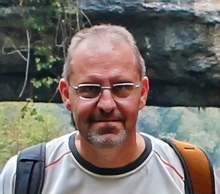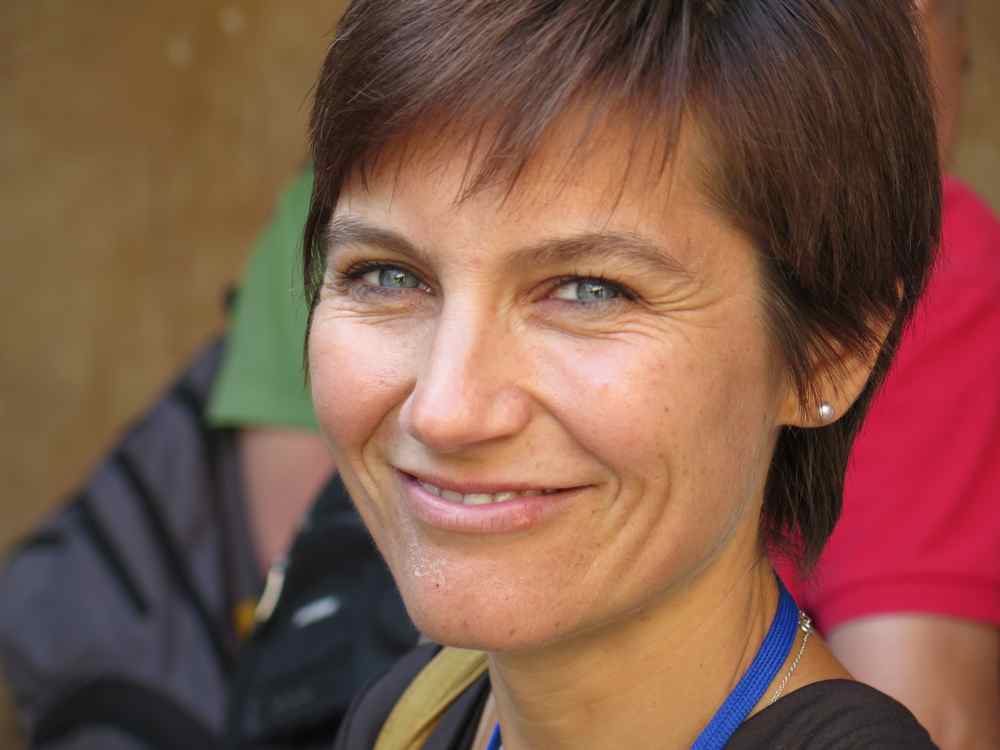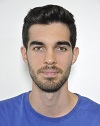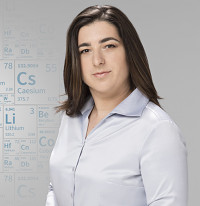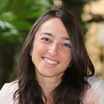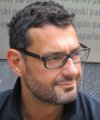Studying at the University of Verona
Here you can find information on the organisational aspects of the Programme, lecture timetables, learning activities and useful contact details for your time at the University, from enrolment to graduation.
Academic calendar
The academic calendar shows the deadlines and scheduled events that are relevant to students, teaching and technical-administrative staff of the University. Public holidays and University closures are also indicated. The academic year normally begins on 1 October each year and ends on 30 September of the following year.
Course calendar
The Academic Calendar sets out the degree programme lecture and exam timetables, as well as the relevant university closure dates..
| Period | From | To |
|---|---|---|
| I semestre | Oct 1, 2020 | Jan 29, 2021 |
| II semestre | Mar 1, 2021 | Jun 11, 2021 |
| Session | From | To |
|---|---|---|
| Sessione invernale d'esame | Feb 1, 2021 | Feb 26, 2021 |
| Sessione estiva d'esame | Jun 14, 2021 | Jul 30, 2021 |
| Sessione autunnale d'esame | Sep 1, 2021 | Sep 30, 2021 |
| Session | From | To |
|---|---|---|
| Sessione di laurea estiva | Jul 22, 2021 | Jul 22, 2021 |
| Sessione di laurea autunnale | Oct 14, 2021 | Oct 14, 2021 |
| Sessione di laurea autunnale - Dicembre | Dec 9, 2021 | Dec 9, 2021 |
| Sessione invernale di laurea | Mar 16, 2022 | Mar 16, 2022 |
| Period | From | To |
|---|---|---|
| Festa dell'Immacolata | Dec 8, 2020 | Dec 8, 2020 |
| Vacanze Natalizie | Dec 24, 2020 | Jan 3, 2021 |
| Vacanze di Pasqua | Apr 2, 2021 | Apr 6, 2021 |
| Festa del Santo Patrono | May 21, 2021 | May 21, 2021 |
| Festa della Repubblica | Jun 2, 2021 | Jun 2, 2021 |
| Vacanze Estive | Aug 9, 2021 | Aug 15, 2021 |
Exam calendar
Exam dates and rounds are managed by the relevant Science and Engineering Teaching and Student Services Unit.
To view all the exam sessions available, please use the Exam dashboard on ESSE3.
If you forgot your login details or have problems logging in, please contact the relevant IT HelpDesk, or check the login details recovery web page.
Should you have any doubts or questions, please check the Enrollment FAQs
Academic staff
 federicoluigi.dipasquale@univr.it
federicoluigi.dipasquale@univr.it
 tamara.fioroni@univr.it
tamara.fioroni@univr.it
 rosanna.laking@univr.it
rosanna.laking@univr.it
 davide.mattiolo@univr.it
davide.mattiolo@univr.it
 giulio.mazzi@univr.it
giulio.mazzi@univr.it

Mazzuoccolo Giuseppe
 giuseppe.mazzuoccolo@univr.it
giuseppe.mazzuoccolo@univr.it
 +39 0458027838
+39 0458027838
 chiara.nardon@univr.it
chiara.nardon@univr.it
 daniela.pianezzi@univr.it
daniela.pianezzi@univr.it
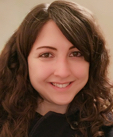
Raffaele Alice
 alice.raffaele@univr.it
alice.raffaele@univr.it
 elia.vincenzi@univr.it
elia.vincenzi@univr.it
 franco.zivcovich@univr.it
franco.zivcovich@univr.it
 simone.zuccher@univr.it
simone.zuccher@univr.it
Study Plan
The Study Plan includes all modules, teaching and learning activities that each student will need to undertake during their time at the University.
Please select your Study Plan based on your enrollment year.
1° Year
| Modules | Credits | TAF | SSD |
|---|
2° Year activated in the A.Y. 2021/2022
| Modules | Credits | TAF | SSD |
|---|
3° Year activated in the A.Y. 2022/2023
| Modules | Credits | TAF | SSD |
|---|
| Modules | Credits | TAF | SSD |
|---|
| Modules | Credits | TAF | SSD |
|---|
| Modules | Credits | TAF | SSD |
|---|
| Modules | Credits | TAF | SSD |
|---|
Legend | Type of training activity (TTA)
TAF (Type of Educational Activity) All courses and activities are classified into different types of educational activities, indicated by a letter.
Numerical analysis II with laboratory (2021/2022)
Teaching code
4S004793
Academic staff
Coordinator
Credits
6
Language
Italian
Scientific Disciplinary Sector (SSD)
MAT/08 - NUMERICAL ANALYSIS
Period
Primo semestre dal Oct 4, 2021 al Jan 28, 2022.
Learning outcomes
The course will discuss, from both the analytic and computational points of view, the numerical solution of Mathematical problems such as: non linear systems, linear systems, matrix eigenvalues, interpolation and approximation, Gaussian quadrature. The objective therefore is to expand on the material introduced in Calcolo Numerico I and to introduce new and more sophisticated solution algorithms. In particular, we will present techniques that are fundamental for important modern problems of Applied Mathematics such as that of high dimensional datasets (SVD and PCoA) and optimization (conjugate gradient method). The course has a Laboratory component where the methods studied will be implemented using the MATLAB programming platform (using either the official Matlab from Mathworks or else the open source version GNU OCTAVE).
At the end of the course the student will be expected to demonstrate that s/he has attained a level of competence in the computational and computer aspects of the course subject, as well as the ability to recognize which algorithms are appropriate for basic and advanced problems of numerical analysis.
Program
The entire course will be available online. Moreover, the laboratory part of the course will also be in-class while the theory part will consist of videos made available on the course's Moodle website.
The course will discuss the following topics:
* Methods for finding zeros of (systems of) functions (fixed point iterations)
* Methods for linear systems (classical iterative methods, conjugate gradient, QR factorization, SVD factorization, overdetermined systems)
* Methods for finding eigenvalues and eigenvectors (the Power method, the QR iteration)
* Spline and Bezier curve interpolation
* Gaussian quadrature
* Introduction to preconditioning and iterative methods for non symmetric systems (GMRES)
* Introduction to numerical optimization
It is expected that there will be a tutor to help with the correction of assigned exercises and with the Laboratory sessions.
Bibliography
Examination Methods
The purpose of the exam is to see if the student is able to recall and produce the theory of the Numerical Analysis presented during the lectures and Laboratory and knows how to use Computer resources for possible further investigation. Moreover, the student must show that s/he knows how to program in the specific software introduced during the course. The exam will consist of two parts. The first part will be held in a Laboratory where the student will be given two hours to individually implement the numerical methods necessary for the solution of the assigned questions. The questions will be based on the entire course material. A pass will be given for a mark of 18/30 or higher. To be admitted to the second part of the exam, the oral, it is required to have first passed the written part. Marks for the written part obtained during the winter or fall sessions will remain valid for that session while those obtained during the summer session will remain valid also for the fall session.
The oral exam will be based on the topics discussed during the classroom lectures. The final course mark will be the weighted average of the marks for the two parts of the exam, with weight 1/4 for the written part and 3/4 for oral.
Due to the present pandemic situation it may be that the exam rules will be adjusted to the situation at hand.
Type D and Type F activities
Le attività formative in ambito D o F comprendono gli insegnamenti impartiti presso l'Università di Verona o periodi di stage/tirocinio professionale.
Nella scelta delle attività di tipo D, gli studenti dovranno tener presente che in sede di approvazione si terrà conto della coerenza delle loro scelte con il progetto formativo del loro piano di studio e dell'adeguatezza delle motivazioni eventualmente fornite.
| years | Modules | TAF | Teacher | |
|---|---|---|---|---|
| 1° 2° | History and Didactics of Geology | D |
Guido Gonzato
(Coordinator)
|
|
| 1° 2° 3° | Algorithms | D |
Roberto Segala
(Coordinator)
|
|
| 1° 2° 3° | Scientific knowledge and active learning strategies | F |
Francesca Monti
(Coordinator)
|
|
| 1° 2° 3° | Genetics | D |
Massimo Delledonne
(Coordinator)
|
|
| years | Modules | TAF | Teacher |
|---|---|---|---|
| 1° 2° 3° | Algorithms | D |
Roberto Segala
(Coordinator)
|
| 1° 2° 3° | Python programming language | D |
Vittoria Cozza
(Coordinator)
|
| 1° 2° 3° | Organization Studies | D |
Giuseppe Favretto
(Coordinator)
|
| years | Modules | TAF | Teacher | |
|---|---|---|---|---|
| 1° | Subject requirements: mathematics | D |
Rossana Capuani
|
|
| 1° 2° 3° | ECMI modelling week | F | Not yet assigned | |
| 1° 2° 3° | ESA Summer of code in space (SOCIS) | F | Not yet assigned | |
| 1° 2° 3° | Google summer of code (GSOC) | F | Not yet assigned | |
| 1° 2° 3° | Introduzione all'analisi non standard | F |
Sisto Baldo
|
|
| 1° 2° 3° | C Programming Language | D |
Pietro Sala
(Coordinator)
|
|
| 1° 2° 3° | LaTeX Language | D |
Enrico Gregorio
(Coordinator)
|
|
Career prospects
Module/Programme news
News for students
There you will find information, resources and services useful during your time at the University (Student’s exam record, your study plan on ESSE3, Distance Learning courses, university email account, office forms, administrative procedures, etc.). You can log into MyUnivr with your GIA login details: only in this way will you be able to receive notification of all the notices from your teachers and your secretariat via email and soon also via the Univr app.
Graduation
Documents
| Title | Info File |
|---|---|
|
|
pdf, it, 31 KB, 29/07/21 |
|
|
pdf, it, 31 KB, 29/07/21 |
|
|
pdf, it, 171 KB, 20/03/24 |
List of theses and work experience proposals
| theses proposals | Research area |
|---|---|
| Formule di rappresentazione per gradienti generalizzati | Mathematics - Analysis |
| Formule di rappresentazione per gradienti generalizzati | Mathematics - Mathematics |
| Proposte Tesi A. Gnoatto | Various topics |
| Mathematics Bachelor and Master thesis titles | Various topics |
| THESIS_1: Sensors and Actuators for Applications in Micro-Robotics and Robotic Surgery | Various topics |
| THESIS_2: Force Feedback and Haptics in the Da Vinci Robot: study, analysis, and future perspectives | Various topics |
| THESIS_3: Cable-Driven Systems in the Da Vinci Robotic Tools: study, analysis and optimization | Various topics |
| Stage | Research area |
|---|---|
| Internship proposals for students in mathematics | Various topics |
Attendance
As stated in the Teaching Regulations for the A.Y. 2022/2023, except for specific practical or lab activities, attendance is not mandatory. Regarding these activities, please see the web page of each module for information on the number of hours that must be attended on-site.
Career management
Student login and resources
Erasmus+ and other experiences abroad
Commissione tutor
La commissione ha il compito di guidare le studentesse e gli studenti durante l'intero percorso di studi, di orientarli nella scelta dei percorsi formativi, di renderli attivamente partecipi del processo formativo e di contribuire al superamento di eventuali difficoltà individuali.
E' composta dai proff. Sisto Baldo, Marco Caliari, Francesca Mantese, Giandomenico Orlandi e Nicola Sansonetto

